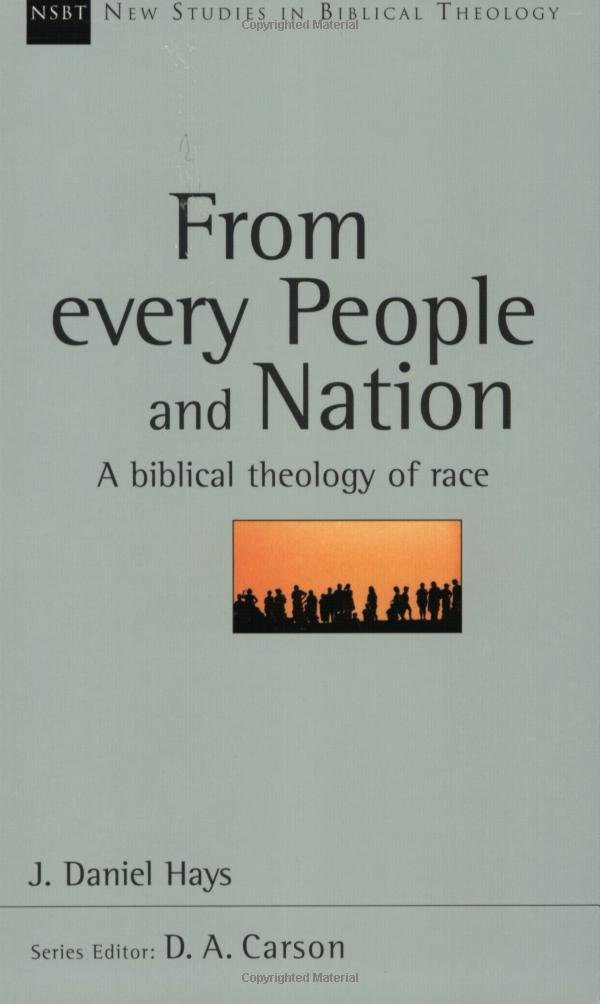A Brief Book Summary from Books At a Glance
About the Author
Daniel Hays is Dean of the Pruet School of Christian Studies and Professor of Biblical Studies, Ouachita Baptist University, Arkansas. He is the co-author of Grasping God’s Word. He and his family have worked as missionaries in Ethiopia.
Introduction
In this contribution to the New Studies in Biblical Theology series, J. Daniel Hays explores a biblical theology of race. He works from Genesis to Revelation, showing the continuity and development of this theme across the canon. Hays’s balanced exegesis and sensitive applications make this volume well worth reading. He demonstrates the meaning of the biblical material in its cultural context and then applies it to contemporary race relations. God’s redemptive plan has always been focused on all nations and it culminates in multi-ethnic eschatological glory. The true basis of union for all peoples is found in Christ and the Spirit, as the universal message of the gospel is received by faith.
Table of Contents
Chapter 1 Introduction
Chapter 2 The Ethnic Make-Up of the Old Testament World
Chapter 3 Creation, Blessing, and Race (Genesis 1-12)
Chapter 4 Israel, the Torah, Foreigners, and Intermarriage
Chapter 5 Israel and Black Africa during the Monarchy
Chapter 6 Racial Issues in the Prophets
Chapter 7 The Ethnic Make-up of the New Testament World
Chapter 8 Race and the Theology of Luke-Acts
Chapter 9 Race, Pauline Theology, and the Apocalypse
Chapter 10 Conclusions and Applications
Summary
Chapter One: Introduction
In the American church today, Whites and Blacks have very different views on the issue of racism. White scholars tend to be oblivious to the theological issues involving race. In the evangelical church, Whites report that race relations are improving, whereas Blacks report that they are deteriorating. Whites tend to view racism in terms of personal relationships, while Blacks view it in larger social and systematic categories. Widely used theology texts virtually ignore the issue of race, even though it is an important issue and touches on matters of anthropology and ecclesiology. Although there have been a few attempts to address the race issue from a biblical perspective, much more needs to be done. This book will examine the Bible’s teaching on race from Genesis to Revelation. Racial strife exists all over the world, but this work will focus on the American church. As Christianity continues to flourish around the world and penetrate more nations and races, it will be more and more imperative for the church to have a sound theology of race.
Chapter Two: The Ethnic Make-up of the Old Testament World
We are all affected by our cultural pre-understanding when we read the Bible. We fill in the gaps with our cultural assumptions, and we also subconsciously assume that the portrayals of biblical characters that are common in the West are accurate (even though art and movies have inaccurately shown biblical characters as White Europeans or Americans). Even works that are explicitly addressing the various peoples and nations of the Bible tend to ignore the Cushites, even though they are a Black African tribe that is important in the Bible. (Cushites are mentioned more than many of the other people groups that are referred to in Scripture, but it is these lesser groups that receive mention in the church’s literature.)
Defining “ethnicity” is very difficult and different people use different criteria. There are physical, territorial, religious, linguistic. . ..
[To continue reading this summary, please see below....]The remainder of this article is premium content. Become a member to continue reading.
Already have an account? Sign In
